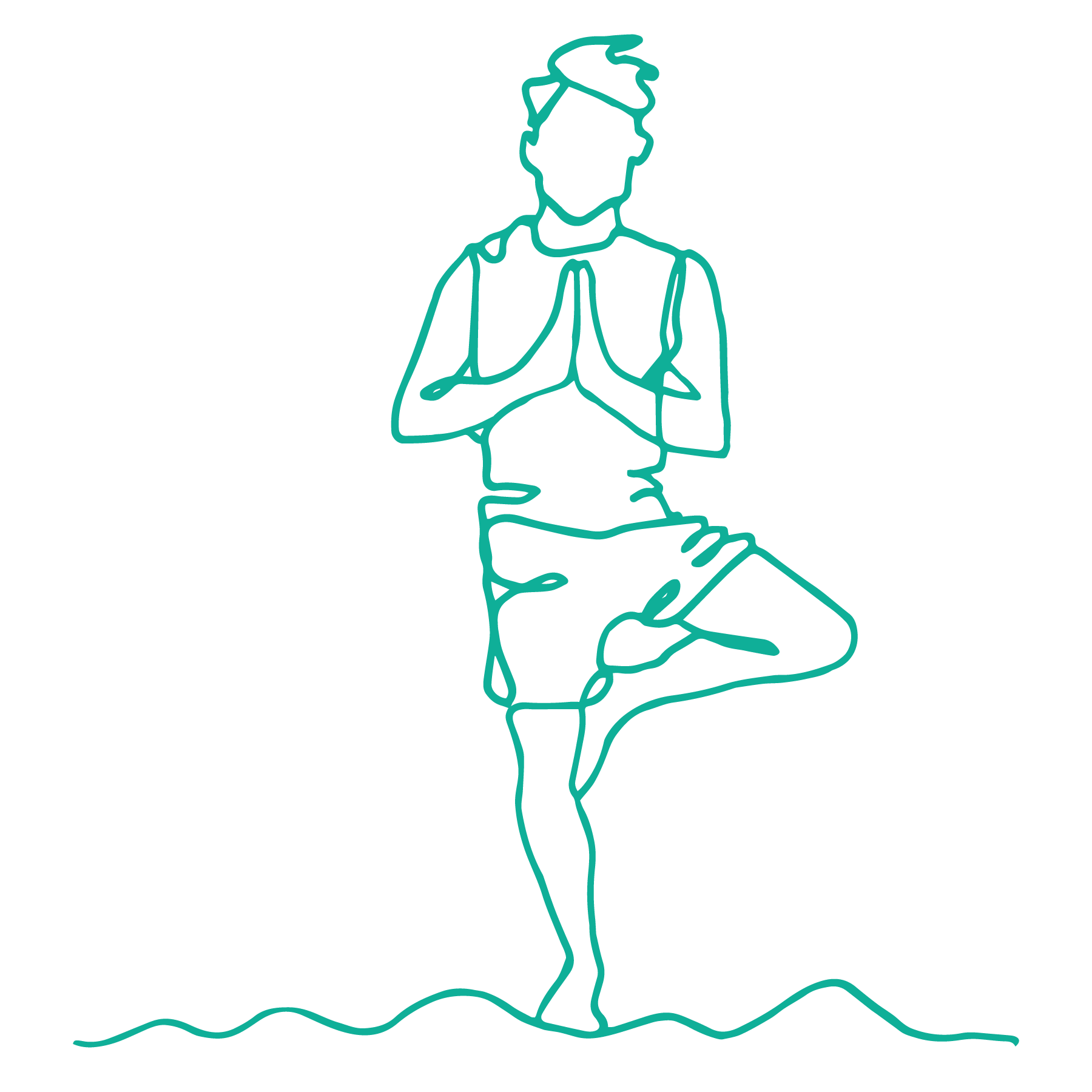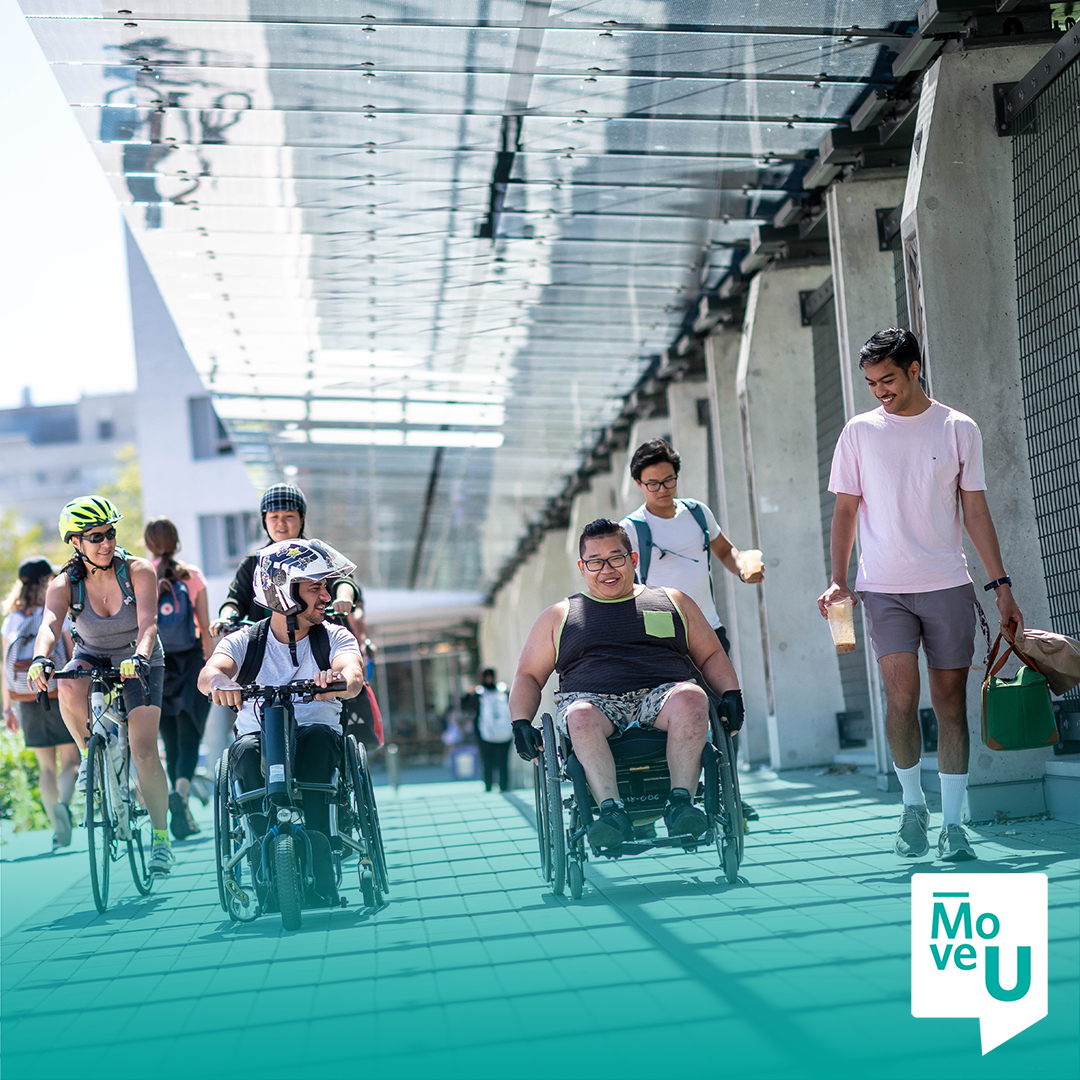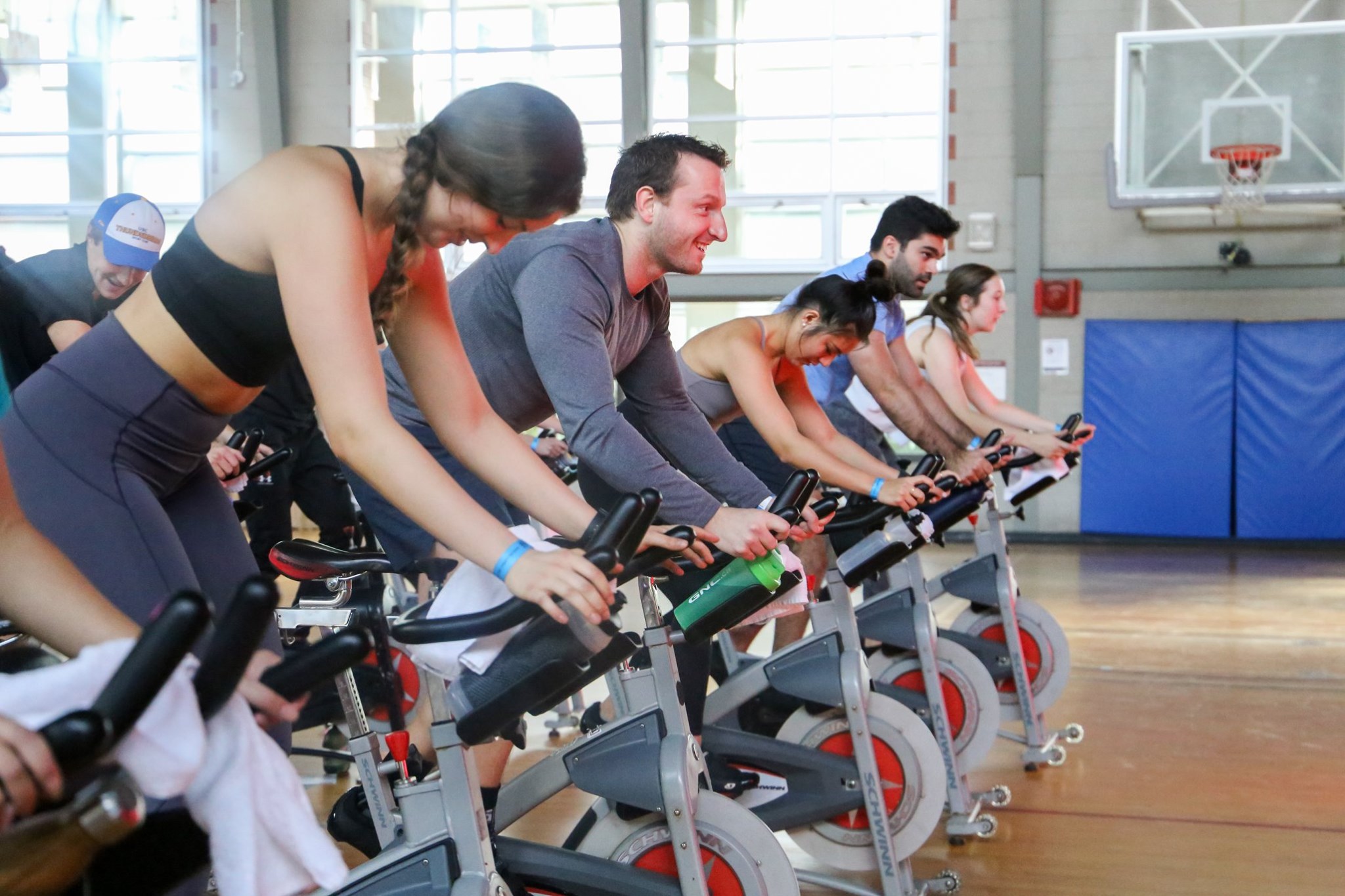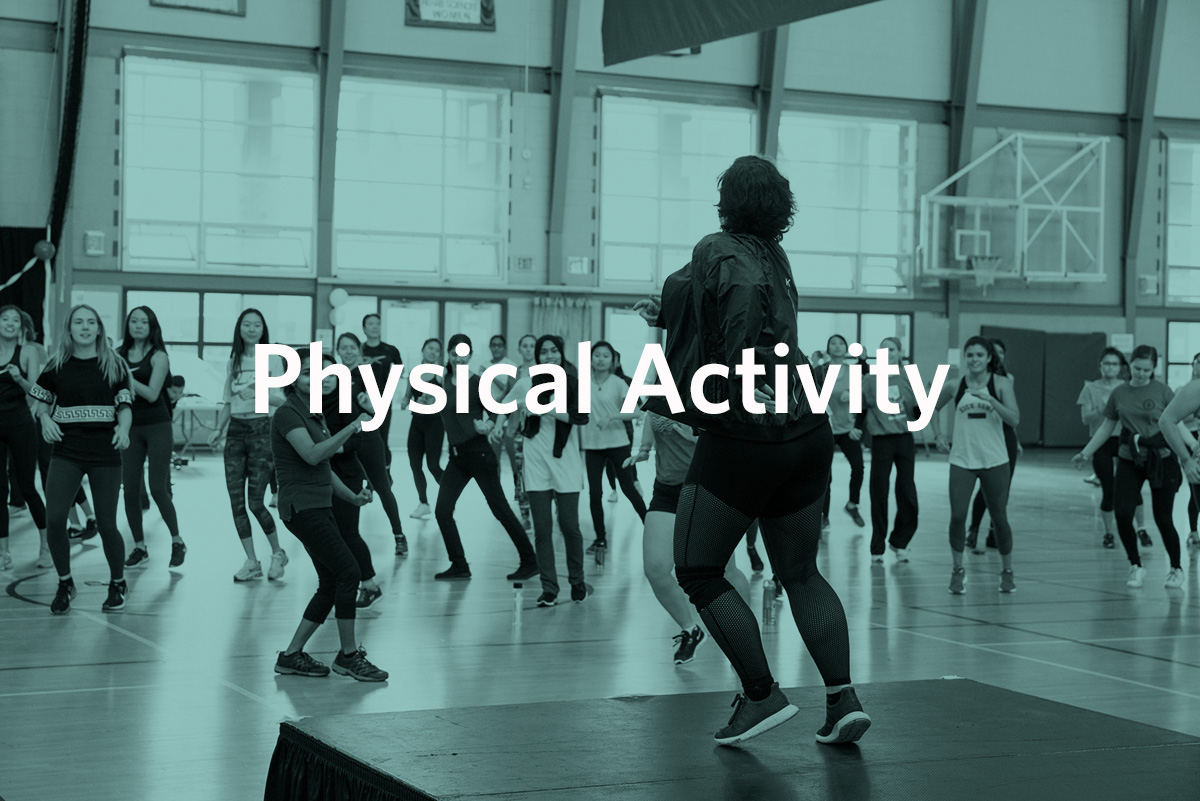Why Move More?
Move More. Learn More.
Make movement part of your work or study routine—it can improve learning, concentration, and memory, and can also increase your creativity and productivity.
Working and learning in classrooms, labs, and offices, attending meetings, and using computers all equal less time moving and more time spent being sedentary.
Working and learning remotely, even if only some of the time, can make it difficult to get our daily dose of movement—without daily commutes, walks or rolls between classes, or recreational classes, you might find yourself moving less.
Breaking up bouts of inactivity with movement throughout the day is key to achieving and maintaining good health. And when it comes to moving more, it all adds up. The new Canadian 24-Hour Movement Guidelines highlight the importance of routine rituals in your daily life that count towards a healthy 24 hours, including walks or rolls to the bus, gardening, taking the stairs, and household chores. Breaking up bouts of sedentary behaviour is key to keeping yourself healthy!
- Move More—regularly, and throughout the day.
- Move Well—in ways that are comfortable, empowering and motivating to you, regardless of your level of ability.
- Move Anywhere—find opportunities to move that work for you, wherever you are!
- Keep Moving—let Move UBC be an opportunity to explore physical activity and how it fits into your life year-round!
- Moving for the Planet —explore ways to incorporate movement into our daily commute to work or class, for running errands, or for other parts of our lives to positively impact our minds, bodies, and environment.

Benefits of Moving More
Being physically active can often fall to the bottom of your to-do list, and it can be especially hard to find the time and motivation to exercise during busy or stressful times. For many, working and learning are tied to a computer and can mean fewer opportunities to be active throughout the day.
But physical activity—even in small doses—can actually help you live, work, and learn your best.
The best way to reduce your time sitting is to commit to frequent and short movement breaks. Active breaks such as going to fill your water bottle, impromptu dance parties, standing during a meeting, and desk exercises are all great ways to add a little bit of movement to your day!
Benefits of moving more include:
Move for the planet
Healthy heart, healthy planet
If active transportation is an option for you, there are many ways to help add movement to your day during your commute or for running errands. Not only does active transportation, like taking transit, support your mental and physical health, but it also helps reduce emissions and protect the planet. Learn more about tips for travelling sustainably here.
Move More, Stress Less
Physical activity helps relieve stress
Just 150 minutes of moderate to vigorous physical activity each week can help boost your mood, improve self-esteem, and decrease stress, anxiety, and depression.
Learn about research happening in the Fitness, Aging and Stress Lab.
Move Well, Sleep Well
Work up a sweat for better rest
Exercise can help you sleep soundly and wake up refreshed. Regulated sleep patterns and better rest are also linked with fostering and maintaining mental health.
Move Well, Heal Well
Let movement be like medicine
Regular, moderate exercise helps fight many chronic diseases, and boosts your immune system, helping you heal better. Physical activity is also linked to reduced illness and sick days off.
Active Body, Healthy Mind
Support your mental health by moving more!
Even a small daily dose of physical activity can help you thrive. It can also lead to increased engagement and social activities, which also contribute to building mental health.
Learn more about Mind in Motion, an exercise intervention for students seeking mental health care on campus.
How Much do we Need to Move?
Physical activity looks different for everyone—how much, how hard, and how often is a very individual choice that is dependent on many different factors. Take it step-by-step and move in ways that feel good to you.
For a healthy 24-hours, the Canadian 24-Hour Movement Guideline recommends:

- Performing a variety of types and intensities of physical activity
- 150 minutes of moderate to vigorous aerobic physical activities per week (that's just 20 minutes per day)
- Muscle strengthening activities using major muscle groups at least twice a week
- Several hours of light physical activities, including standing
- Limiting sedentary time to 8 hours or less, which includes no more than 3 hours of recreational screen time
- Breaking up long periods of sitting as often as possible
- Getting 7 to 9 hours of good-quality sleep on a regular basis, with consistent bed and wake-up times



